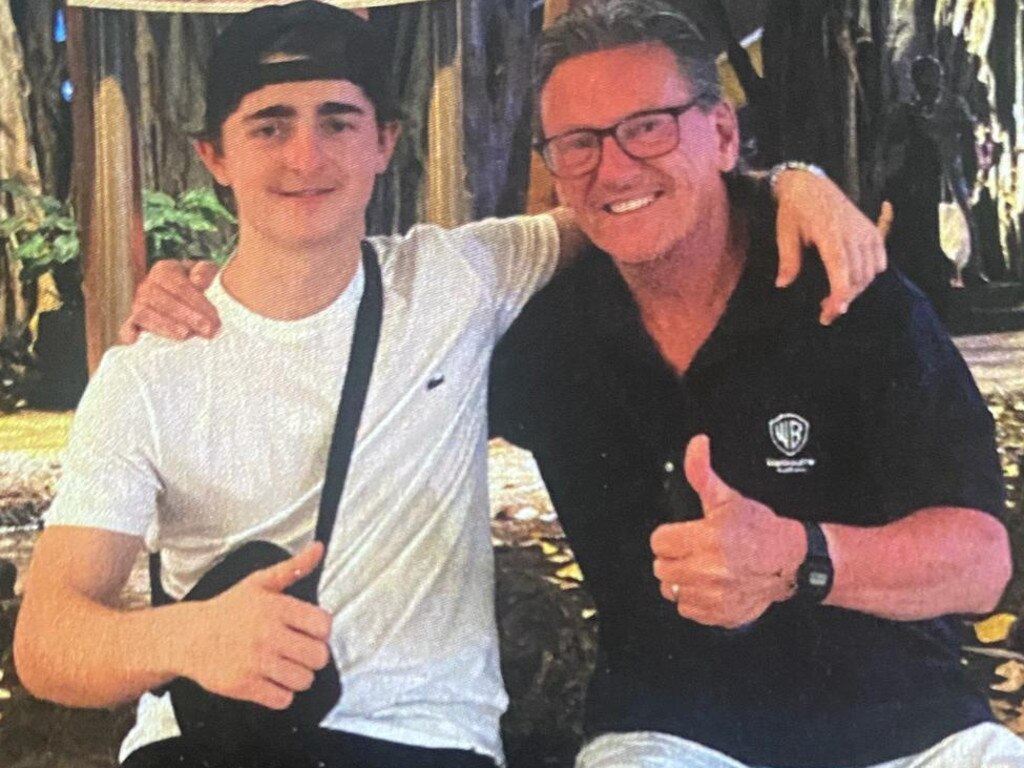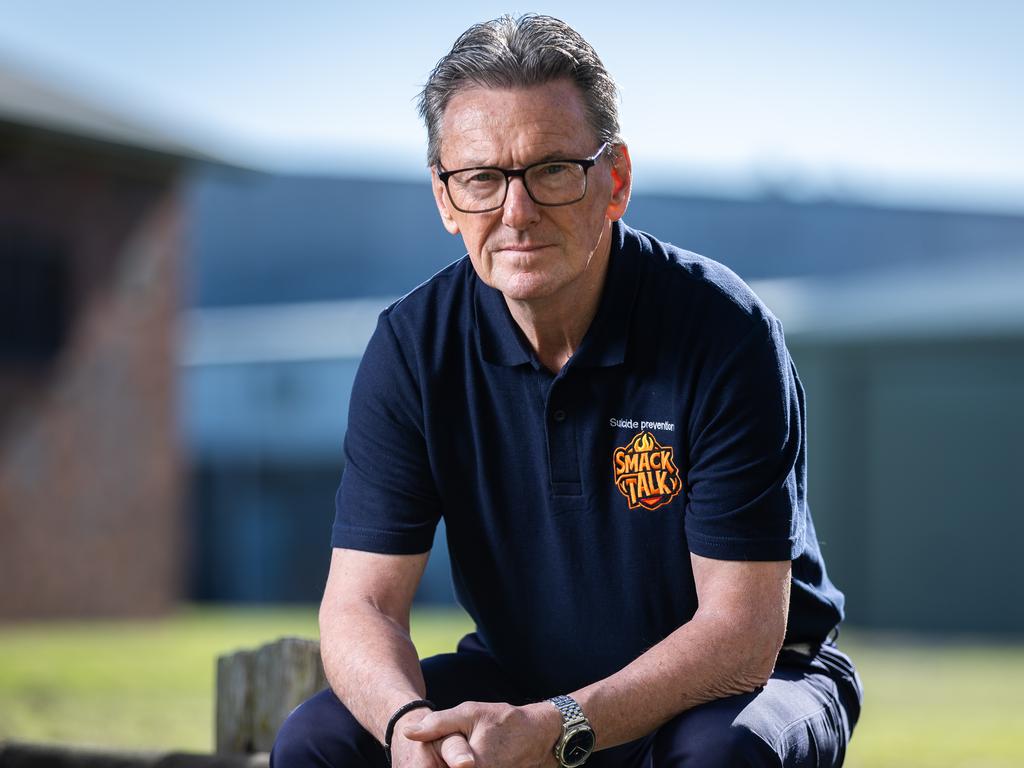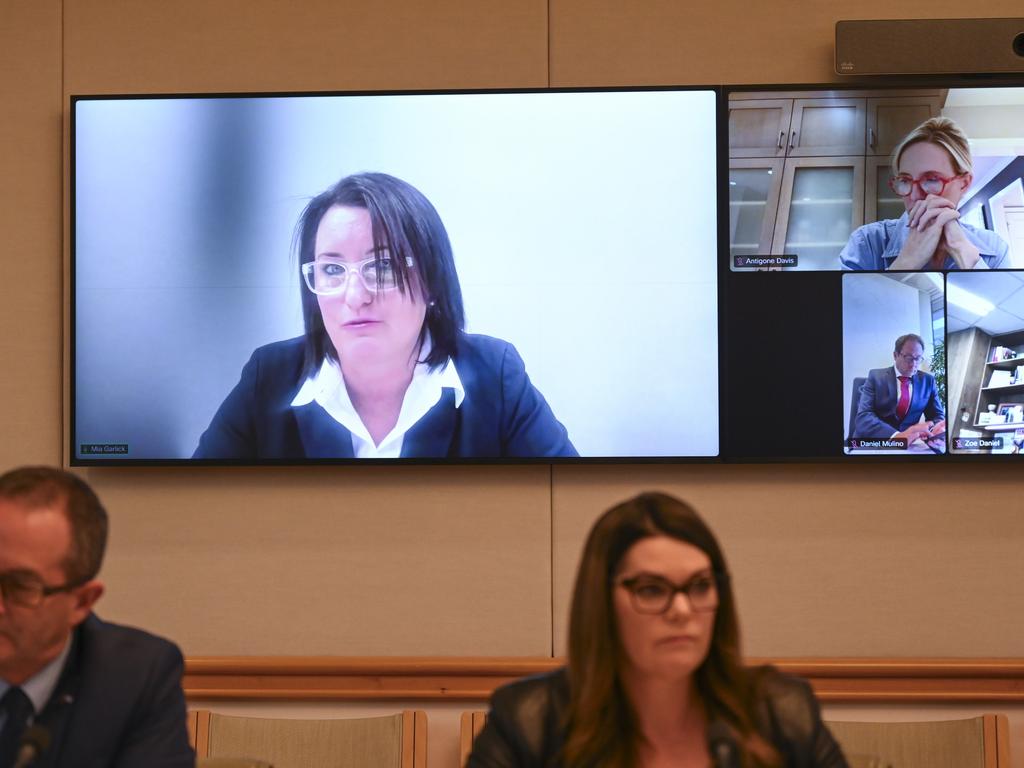Meta denies social media is harming kids, despite alarming spike in mental illnesses
Tech giant Meta has sensationally claimed social media isn’t harming children— saying teen mental health issues are “complex and multifactorial”.
Victoria
Don't miss out on the headlines from Victoria. Followed categories will be added to My News.
Social media is not harming children, tech giants have sensationally claimed, rejecting mountains of evidence that it is fuelling an alarming surge in poor mental health and eating disorders.
Families who have lost children to suicide following online bullying and sextortion have accused the social media platforms of having “blood on their hands” following extraordinary testimony at a federal parliamentary probe on Friday.
Meta executives sought to shift responsibility for age verification on app stores and joined with Snapchat with not wanting the age of access to rise to 16.

Antigone Davis, Meta’s vice-president and global head of safety, dismissed concerns about the damage its platform is causing saying “I don’t think that social media has done harm to our children”.
“Social media has provides tremendous benefits,” Ms Davis said.
“Issues of teen mental health are complex and multifactorial.
“It is our responsibility as a company to ensure that teens can take advantage of those benefits of social media in a safe and positive environment.” Liberal MP Andrew Wallace told Ms Davis “you cannot be serious”.
Ms Davis said a National Academy of Sciences review of research about social media and its impact on teen mental health concluded that there “wasn’t a correlation”.
She said if someone who was struggling with an eating disorder was on their platform, there were safeguards in place to ensure that it wasn’t “contributing or exacerbating” the illness.
“If a teen searches for that type of content on our platform … we pop up resources to redirect them,” Ms Davis said.
“We’ve been dealing with eating disorders since I was a teen and we will probably continue to deal with eating disorders for young women as long as we continue to put those pressures on them as a society.”

Melbourne dad Wayne Holdsworth, who lost his son Mac, 17, to suicide in October last year after falling victim to sextortion, said social media companies had “blood on their hands” and weren’t “taking responsibility”.
Mr Holdsworth said Meta’s comments were insensitive, naive, and bordering on disrespectful.
“They know the damage that social media, their social media, is causing our Australian children and they’re in denial and they are showing a total disrespect for their lives,” he said.
“They do not care. They are driven solely by the dollar and control and we are sick of it. We’re not putting up with it any longer.”
Adelaide clinical psychologist Dr Simon Wilksch said he heard countless reports of harmful impacts of social media in starting or exacerbating concerns about appearance, food, and exercise.
Dr Wilksch, who is also an eating disorders researcher, said a 2023 review found “evidence from 50 studies in 17 countries indicates that social media usage leads to body image concerns, eating disorders/disordered eating and poor mental health”.
He said this was consistent with his own work where higher eating disorder symptoms were identified in 11 to 13-year-olds with social media accounts versus those without.
“We know that rates of use in younger children are increasing rapidly as there is no current age verification,” Dr Wilksch said.
Opposition communications spokesman David Coleman said Ms Davis’ statement would be incredibly offensive to millions of Australians.
“It tells us everything we need to know about why we must take action on age verification – we absolutely cannot trust Meta,” Mr Coleman said.
Meta said it was supportive of age verification at an app store level, saying it would otherwise create “additional privacy intrusions” and drive people to other apps that don’t ask for users’ age.
Asked if she supported raising the age of access to 16, Ms Davis said Meta’s services were for people 13 years and older.
“We do support having parental approval for those under the age of 16,” she said.
But Eating Disorders Families Australia executive director Jane Rowan said it was constantly hearing that social media was contributing to the development of eating disorders, body dysmorphia, and disordered eating.

Ms Rowan said Meta’s comments were appalling and that parental guidance was not realistic. “Unless you’re a tech expert yourself it’s really, really hard and incredibly challenging to keep an eye on what your kids are looking at,” Ms Rowan said.
“And if you’ve got more than one child, it’s virtually impossible.”
The social media platforms were also interrogated on the issue of beauty filters, with TikTok questioned about toxic eating content.
TikTok Australia public policy director Ella Woods-Joyce said it tried to give “users tools to guide their own journey and make sure that they’re having an experience that’s safe for them”.
Snapchat was also grilled over safeguards on its app, which allows users to send photos and videos, following the tragic death of 15-year-old Matilda “Tilly” Rosewarne.
The committee heard that Tilly was bullied and her privacy had been violated after a fellow student circulated on Snapchat of photo of a body with the head cut from the frame, claiming it was the teenager among her classmates.

All platforms said they worked with Australian authorities, including the eSafety Commissioner, to ensure their platforms were safe.
Anthony Albanese said social media was a “real issue for families that causes enormous concern”.
The Prime Minister said young people’s mental health was “connected with some of what we see online”, and they could also be exposed to dangers such as grooming.
The Joint Select Committee on Social Media and Australian Society will on Tuesday hear evidence from the federal Attorney-General's Department and Communications Department about the impacts of social media on Australian society.
More Coverage
Originally published as Meta denies social media is harming kids, despite alarming spike in mental illnesses








